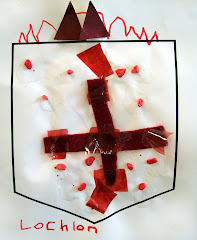Dear Families
The TGA (Therapeutic Goods
Administration) has just released a warning that medicines containing
bromhexine have been linked to a small risk of severe allergic reactions and
severe skin reactions. (released June 3, 2016)
Bromhexine is contained in a number of
over-the-counter cough and cold medicines as a mucolytic (see list below), and
the TGA says the alert is timely “given the arrival of winter and influenza
season”.
The TGA says it reviewed this issue after
Europe’s Pharmacovigilance Risk Assessment Committee (PRAC) confirmed the
previously known risk of severe allergic reactions associated with bromhexine
medicines and also identified a small risk of severe cutaneous adverse
reactions such as skin swelling, rash or Stevens-Johnson syndrome.
As most of these brands are schedule 2
medicines, not all have Product Information (PI) or Consumer Medicines
Information (CMI) documents. The TGA is asking for product information for
these products to be updated with warnings regarding the small risk of these
potential adverse events and instructions for patients to stop treatment and
seek medical advice if symptoms of severe allergic reactions or skin reactions
occur.
Medicine brands that contain bromhexine
hydrochloride:
NB: Interestingly, many of the brand
names involved (as listed above) also have cough medicines varieties containing
Pholocodine. Pholcodine has
been implicated in an increased risk of anaesthetic anaphylaxis. (see list
below for cough preparations containing pholocodine)
Medicine brands that contain pholcodine:
So
what options do you have?
Coughs are a normal part of a cold –
coughing up mucus is important and can protect the lungs from developing
pneumonia. So most coughs don’t need any treatment at all.
However, coughs in babies and little
children need medical review. As do severe coughs, breathing problems, chest
pain, coughing up blood, coughs with fever or coughs lasting longer than 3
weeks. If you are not sure or are concerned for yourself or those you care for
– seek medical advice.
Cough medicines are not recommended for
children under 6 years of age and for children over 6 – they should only be
given on medical advice.
Some alternatives to cough medicine and
general ‘cough care’ are:
·
Keep hydrated. Coughing dries out the airways
and can prolong the cough. Warm, clear fluids are best: eg: warm apple juice,
warm water with lemon, herbal teas eg thyme, peppermint or ginger
·
Honey has been shown to reduce the severity and
duration of a cough as it is a mucolytic. Do not give honey to children under 1
year of age as there is a risk of botulism. For those over 1 year: a teaspoon
of honey taken 1-3 times a day may help – and has been shown to be especially
effective if taken about 30mins before bed. A Honey and lemon warm drink helps
with both hydration and honey benefits
·
If the air is dry – a humidifier or vapouriser
may help as dry air makes coughs worse.
·
Avoid smoke: tobacco and wood as they are an
irritant.
·
Sucking on lozenges can help relieve a ticklish
cough
·
Throat gargles and nasal washes/sprays may also
help as post-nasal drip and excessive mucus are irritating to the airway.
·
Elevate your head when you rest
·
Apply vapour rub on your chest or on a tissue
·
A frequent cough could be caused by asthma or
allergies. If this might be the case – ensure your regular medication is taken
as advised and is not expired, empty or damaged.
·
Good personal hygiene – cover your mouth when
you cough. Cough into a tissue when possible and dispose of the tissue
immediately. If you have to cough into your hands – wash them immediately.
Carrying a small bottle of hand sanitiser will help if no running water is available.
As always – if your cough, or the cough
of someone you are caring for, is concerning or you are worried – please seek
medical advice.
With kind regards and best wishes for a
healthy winter,
Anna
Anna Thomson RN
School Nurse
PAC Health Centre
Prince Alfred College
